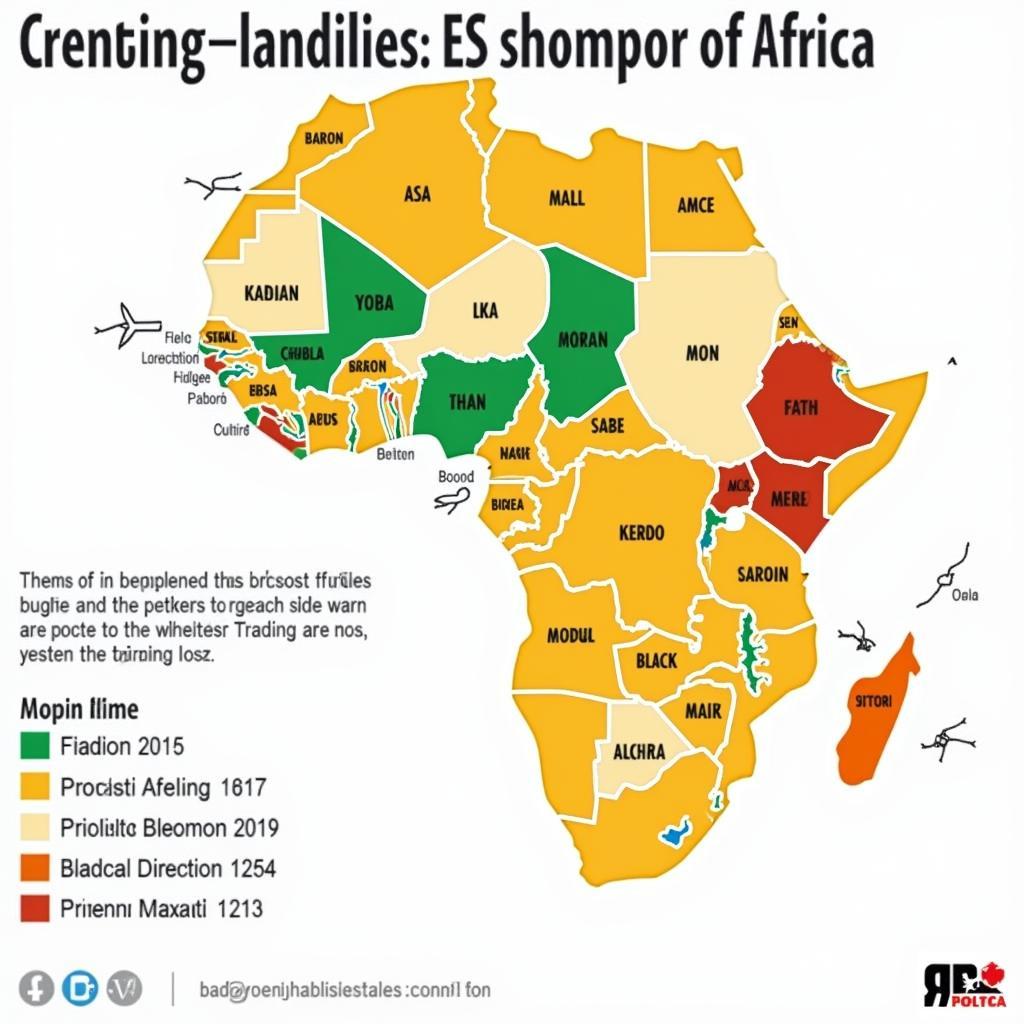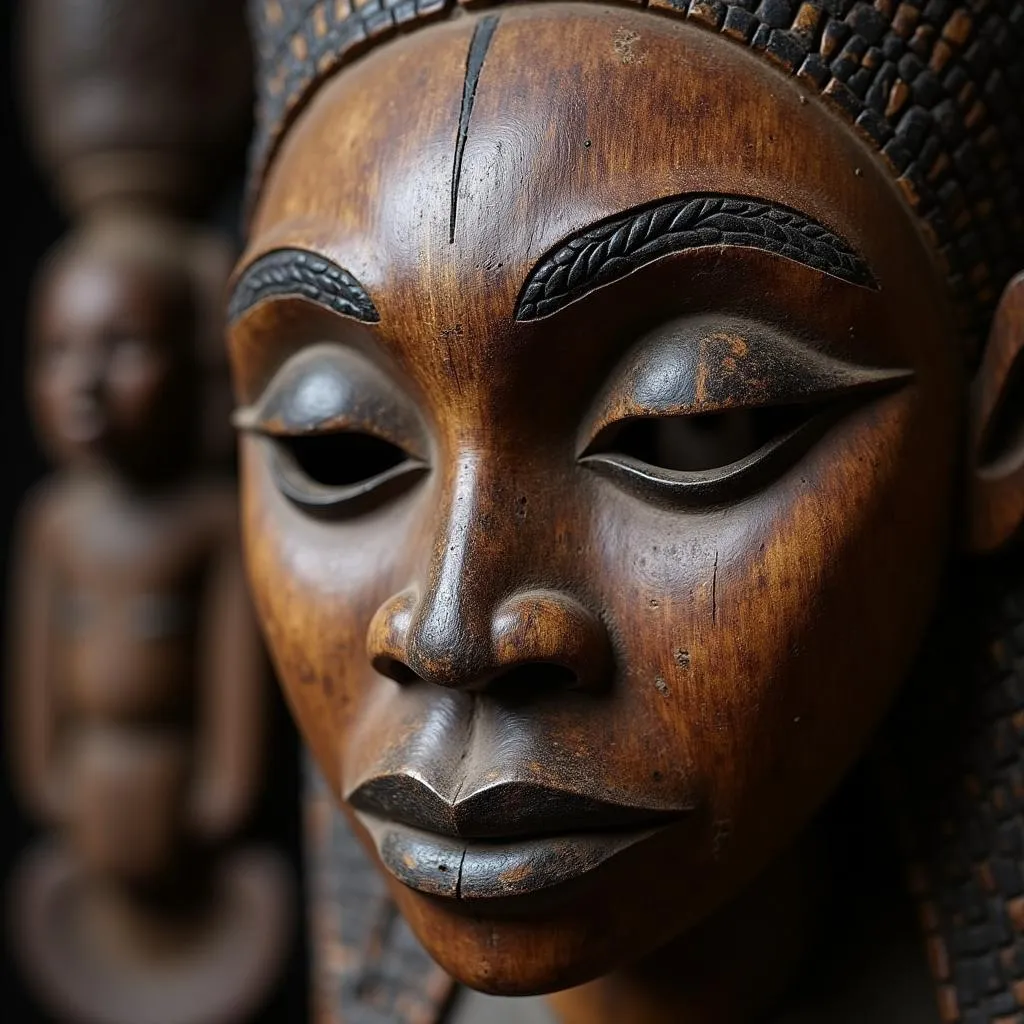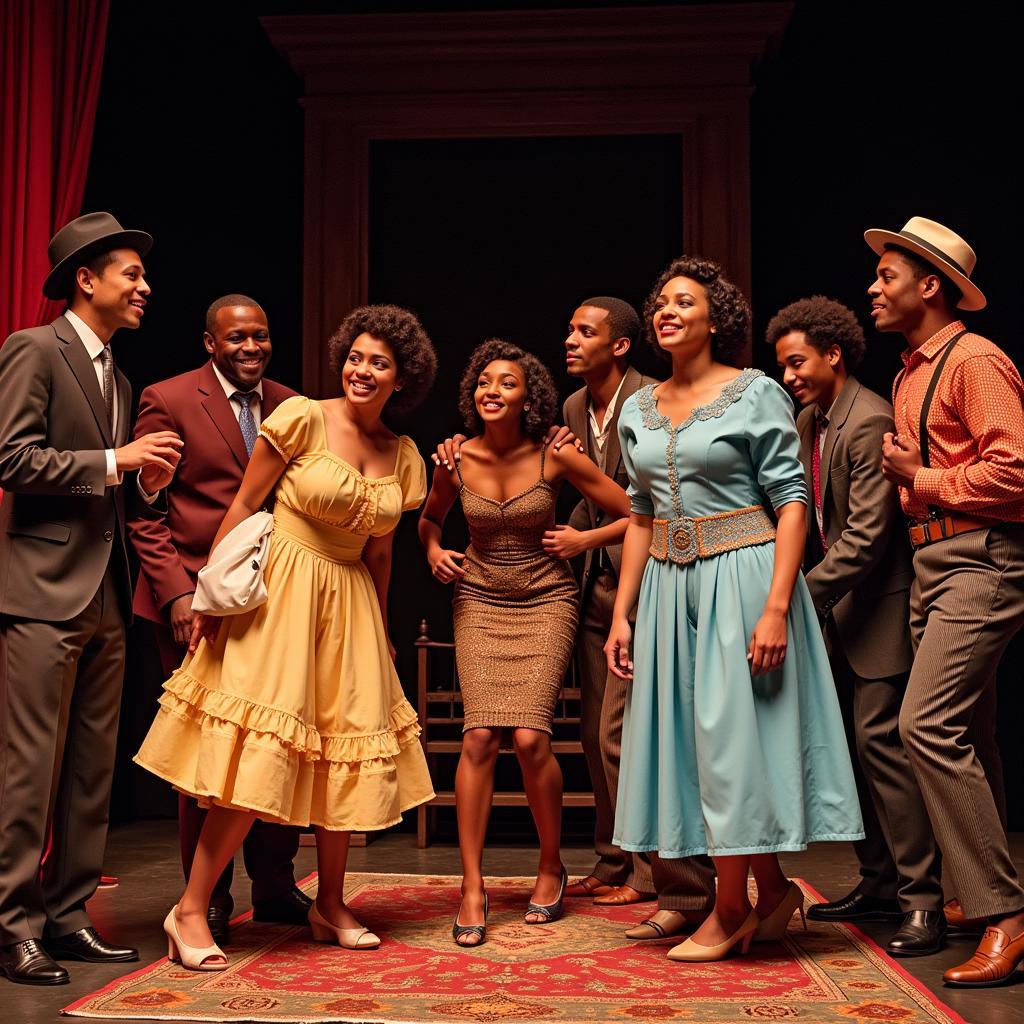Aborigines and Africans: Exploring Shared Histories and Distinct Cultures
Aborigines And Africans, two groups often linked in discussions of indigenous populations, share a history of resilience and cultural richness. This article explores the fascinating connections and crucial distinctions between these diverse communities, delving into their unique experiences and highlighting the importance of understanding their separate identities.
Unveiling the Complexities of “Indigenous”
The term “indigenous” often brings to mind both Aboriginal Australians and various African ethnic groups. However, while the term broadly refers to people with historical ties to a land preceding colonization, it’s crucial to recognize the vast diversity within these populations. Generalizing about “Africans” as a single entity overlooks the continent’s incredible tapestry of cultures, languages, and histories. Similarly, the term “Aborigines” encompasses hundreds of distinct groups across Australia, each with its own unique traditions and languages. Equating these diverse groups simplifies their complex realities.
Shared Experiences: Colonization and Cultural Survival
While geographically distant, Aborigines and Africans share the experience of colonization and its lasting impact. Both have faced land dispossession, cultural suppression, and systemic discrimination. This shared history of struggle has fostered resilience and a deep connection to ancestral lands. However, the specific forms of colonization and its consequences varied greatly between and within these continents. Understanding these nuances is essential to appreciating the unique challenges faced by each group.
Distinct Cultures: A Celebration of Diversity
Despite shared historical threads, it’s vital to recognize the distinct cultures of Aboriginal Australians and African peoples. Aboriginal culture, rooted in a deep spiritual connection to the land, is expressed through intricate storytelling, art, music, and dance. African cultures, equally diverse, encompass a vast array of traditions, beliefs, and artistic expressions. From the vibrant textiles of West Africa to the complex musical traditions of East Africa, the continent’s cultural richness is unparalleled.
What are the key cultural differences between Aboriginal Australians and African communities?
Aboriginal Australian cultures are often characterized by a strong emphasis on kinship, oral traditions, and a deep connection to the land, often expressed through complex systems of knowledge about the natural world. African cultures, while diverse, often share a communal emphasis, vibrant artistic traditions, and a rich oral history. However, these are broad generalizations, and specific cultural practices vary significantly between different groups within both continents.
Genetic Connections and Anthropological Perspectives
The question of genetic connections between Aborigines and Africans is a complex one. While both groups share some ancient ancestry as part of the human family tree, their migration paths and subsequent evolution diverged thousands of years ago. Modern genetic research suggests that Aboriginal Australians represent one of the oldest continuous populations outside of Africa, having migrated from the continent tens of thousands of years ago. This makes their cultural heritage exceptionally significant.
How are Aborigines genetically related to Africans?
While all humans share a common African ancestor, Aboriginals represent a distinct lineage that migrated from Africa very early in human history. Their genetic makeup reflects this ancient migration and subsequent isolation, making them a unique and invaluable source of information about human evolution.
Bridging the Gap: Respectful Engagement and Cultural Exchange
Understanding the shared histories and distinct cultures of Aborigines and Africans requires respectful engagement and a commitment to learning. By appreciating the nuances of each culture, we can foster meaningful cross-cultural dialogue and celebrate the rich tapestry of human experience.
Conclusion
Aborigines and Africans, while often grouped together under the umbrella of “indigenous,” represent distinct populations with their own unique histories, cultures, and struggles. Recognizing these differences is essential to fostering respectful engagement and appreciating the rich tapestry of human experience. By exploring these shared histories and distinct cultures, we can gain a deeper understanding of the global indigenous experience and work towards a future that celebrates diversity and promotes cultural preservation.
FAQ
- Are Aborigines the same as Africans? No, Aborigines are indigenous to Australia, while Africans are indigenous to the continent of Africa. These are distinct populations with their own unique histories and cultures.
- Do Aborigines and Africans share any common ancestry? All humans share a common ancestor originating in Africa. Aboriginals represent a very early migration out of Africa, developing their unique culture over tens of thousands of years.
- What are some examples of Aboriginal culture? Aboriginal culture encompasses diverse traditions, including complex kinship systems, oral storytelling, intricate art forms like dot painting, and a deep spiritual connection to the land.
- What are some examples of African culture? African culture is incredibly diverse, encompassing a wide range of languages, religions, artistic traditions, music, dance, and culinary practices, varying significantly across different regions and ethnic groups.
- Why is it important to distinguish between Aborigines and Africans? Recognizing the distinct identities and experiences of these groups avoids harmful generalizations and promotes a more accurate and respectful understanding of their respective cultures.
- How can I learn more about Aboriginal and African cultures? Numerous resources, including books, documentaries, and museums, offer valuable insights into the rich cultural heritage of both Aboriginal Australians and African communities. Engaging with these resources can foster a deeper understanding and appreciation.
- What are some organizations working to support Aboriginal and African communities? Various organizations worldwide are dedicated to supporting indigenous communities in their fight for cultural preservation, land rights, and social justice. Researching and supporting these organizations can make a positive impact.
Need help?
Contact us 24/7:
Phone Number: +255768904061
Email: kaka.mag@gmail.com
Address: Mbarali DC Mawindi, Kangaga, Tanzania.
We have a dedicated customer support team ready to assist you.
Would you like to know more about specific African tribes or delve deeper into the history of Aboriginal Australians? Explore our related articles on [link to relevant article 1] and [link to relevant article 2].


